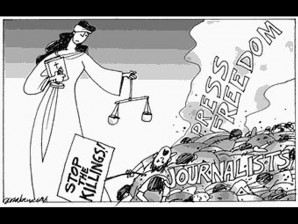How’s that again?
I ASSURE you, in all subjects, we the United States, are with the Philippines. The Philippines and the US are strategic treaty allies. We are partners. We will continue to consult and work with each other on issues, including the South China Sea and the Spratly Islands.”
That’s US Ambassador Harry Thomas speaking, on the subject that has bollixed the country’s leaders and commentariat lately in light of China’s increasing aggression over the group of islets claimed variously in part or in whole by the Philippines and other neighboring nations.
Will the US come to the Philippines’ aid in case China uses force to impose its claim on the Spratlys?
And there it was, a variant on the classic non-denial denial. Thomas all but oozed with honey in rhapsodizing about our two countries’ special ties, based presumably on the Mutual Defense Treaty of 1951, which declares the Philippines and the US’ “sense of duty and common determination to defend themselves against external armed attack.” But as to a firm, unequivocal commitment that his country will rush to help its “strategic treaty ally” in Southeast Asia in case of a Chinese attack—not even those in Malacañang, who are afflicted with the worst case of what Sen. Joker Arroyo calls “wishful thinking,” would find anything concrete and binding in Thomas’ words.
And the earlier the Philippines sees that for what it is—the US will simply not come to blows with China over the Philippine claim to the Spratlys—the better. In fact, at this late hour, after the US and the Philippines have had more than a half-century of often fraught “special relations,” it is not only naive for the likes of Executive Secretary Paquito Ochoa Jr. to blithely invoke the mantra that “the United States has been our ally and they will come,” it is also quite reckless and dangerous. It offers the country a false sense of security, one based on misleading, outdated assumptions.
The Philippines is not a Nato country, for instance— whose treaty with the US is crystal-clear about automatic military retaliation in case of an attack against any one of the organization’s member countries. America’s current troubles, too, would likely preclude its sallying forth into more problem areas in the world, unless those are absolutely vital to its interests. Even as its economy remains fragile, the US has been unable to fully extricate itself from costly wars in Iraq and Afghanistan, while Nato itself, marshaled by the White House, is mired in a seemingly open-ended bombing campaign against Libya. What, then, makes Ochoa think the US would relish committing more of its overstretched resources to a new war front in the Pacific?
The Philippines’ alliance with the US may prove helpful in some other ways. America can help the Aquino government drum up international support for greater diplomatic pressure on China to resolve the Spratlys issue peacefully, in a more mutually advantageous manner with its neighbor countries. That so-called mantle of US protection may fend off more belligerent Chinese acts for a while—China being as loathe to needlessly antagonize the US, and vice versa, for reasons of economic interdependence and self-serving realpolitik—but instead of the Philippines pinning its hopes on America’s fuzzy promises, it should band, now more than ever, with other claimant countries that feel as threatened by China’s muscle-flexing.
Creating a common diplomatic voice against the Chinese juggernaut is not only logical—it is the only sane choice for small, powerless countries like the Philippines. While Vietnam has complained bitterly against hostile Chinese gestures in the Spratlys, neither it nor Malaysia, Brunei, Taiwan and the Philippines can ill afford an all-out conflict with China. Individually, without the strength afforded by a common front, these countries are sitting ducks for Chinese bullying. Together, however, they can muster probably enough clout to stir up more forceful international concern over the issue, and thereby force Beijing to re-calibrate its moves.
But for that to happen, the Aquino government must first abandon its mendicant attitude toward an imagined American benevolence, and learn to stand up on its own. Obviously, with scant funds, it can’t go on a belated buying spree for war matérial from its ally to beef up the country’s defense capabilities. There are precious few options available, but Malacañang can begin with rediscovering self-respect—by telling the Filipino people the truth, that in the case of the Spratlys, this is our country’s fight, not America’s.
















